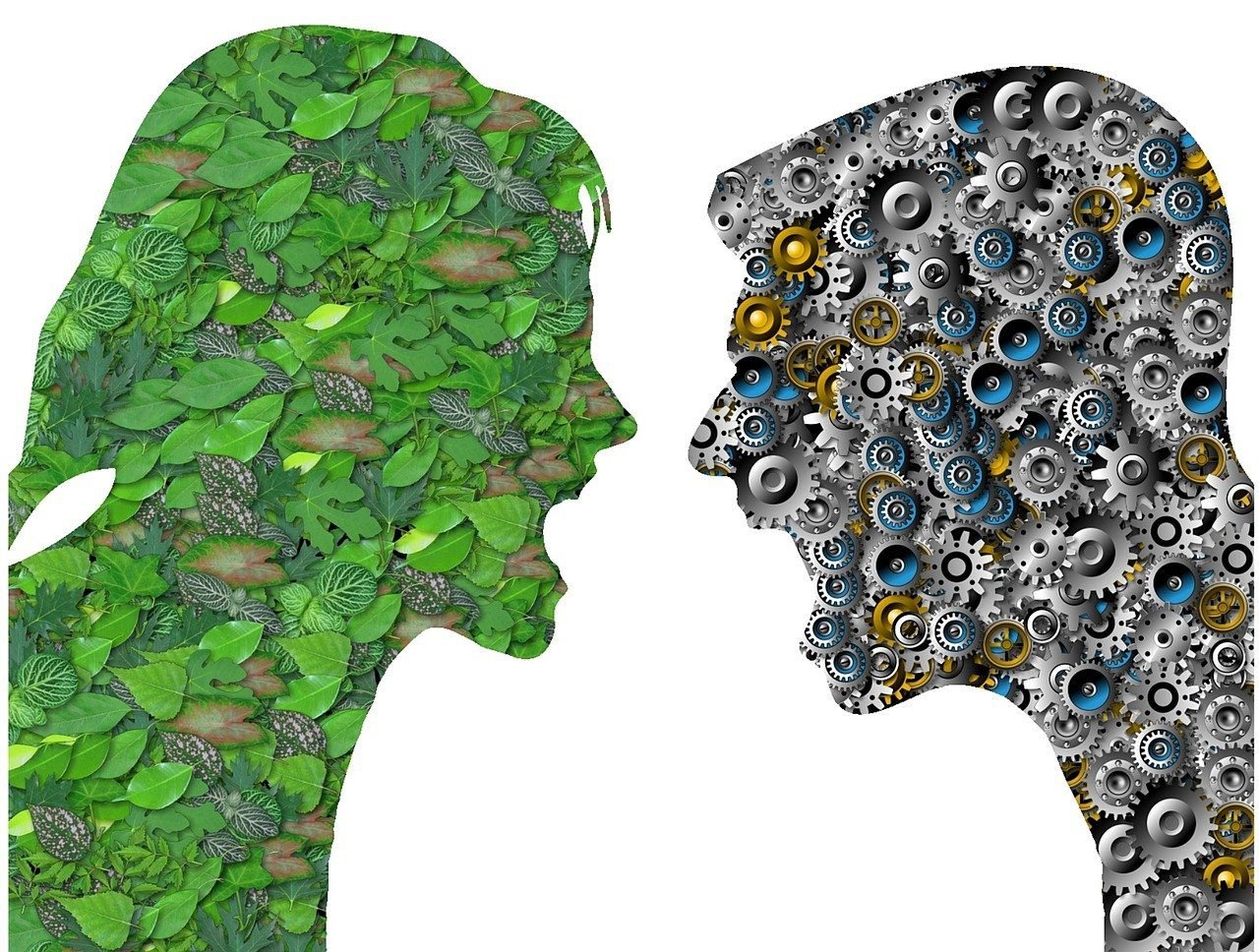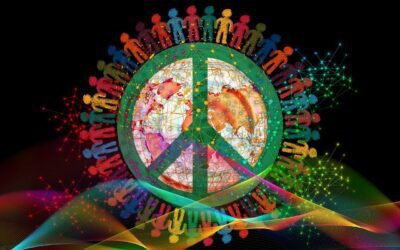Introduction
The international arena is often perceived as a chessboard where nations, driven by their own interests, engage in a constant game of strategy. At times, these interactions lead to conflict, while at other times, they give rise to cooperation. In today’s globalised world, understanding the dynamics between conflict and cooperation is more crucial than ever. The current international scenario is marked by a complex interplay of geopolitical tensions, economic competition, technological advancements, and social movements. This blog explores how the global community navigates from conflict to cooperation, the factors influencing these shifts, and the potential pathways for fostering a more peaceful and cooperative international order.
1. The Nature of International Conflict
a. Historical Context of Conflict
Throughout history, international relations have been dominated by conflict. Wars, territorial disputes, and power struggles have shaped the world we live in today. The two World Wars, the Cold War, and numerous regional conflicts have left indelible marks on the geopolitical landscape. These conflicts were often driven by the pursuit of power, resources, and ideological dominance. The realist school of thought in international relations posits that conflict is an inherent feature of the anarchic international system, where states act in their self-interest to ensure survival.
b. Modern-Day Conflicts
In the contemporary world, conflicts have taken on new forms. While traditional state-to-state wars have become less common, other forms of conflict have emerged. These include:
- Proxy Wars: Conflicts where major powers support opposing sides in regional disputes, as seen in Syria and Yemen.
- Economic Wars: Trade wars and economic sanctions are increasingly used as tools of conflict, most notably between the United States and China.
- Cyber Warfare: The rise of technology has introduced cyber-attacks as a new frontier of conflict, with nations targeting each other’s critical infrastructure and data systems.
- Terrorism: Non-state actors, such as terrorist organisations, continue to pose significant threats to global security.
- Ethnic and Sectarian Conflicts: These conflicts, often driven by deep-seated historical grievances, persist in various regions, including the Middle East, Africa, and Southeast Asia.
c. Causes of Conflict
The causes of international conflict are multifaceted and often intertwined. Some of the primary causes include:
- Resource Competition: Nations often compete for access to natural resources, such as oil, water, and minerals, leading to disputes.
- Territorial Disputes: Borders drawn during colonial times or as a result of past wars continue to be sources of conflict.
- Nationalism: The rise of nationalism and the desire for self-determination can lead to separatist movements and international disputes.
- Power Dynamics: The struggle for regional or global dominance, particularly between major powers, is a significant driver of conflict.
- Cultural and Religious Differences: Misunderstandings and intolerance based on cultural or religious differences can exacerbate tensions between nations.
2. The Shift toward Cooperation
a. The Role of International Institutions
Despite the prevalence of conflict, there has been a significant shift toward cooperation in the international system. This shift has been facilitated by the establishment of international institutions that promote peace, security, and cooperation. Some of these institutions include:
- The United Nations (UN): Established in the aftermath of World War II, the UN plays a crucial role in conflict resolution, peacekeeping, and fostering international cooperation.
- The World Trade Organisation (WTO): The WTO promotes global trade and resolves trade disputes between nations, reducing the likelihood of economic conflicts.
- The International Monetary Fund (IMF) and the World Bank: These institutions provide financial assistance and support to countries in economic distress, promoting global economic stability.
- Regional Organisations: Organisations such as the European Union (EU), African Union (AU), and Association of Southeast Asian Nations (ASEAN) foster regional cooperation and integration.
b. Globalisation and Interdependence
Globalisation has significantly increased economic, social, and cultural interdependence among nations. This interdependence has created a strong incentive for countries to cooperate rather than engage in conflict. Key aspects of globalisation that promote cooperation include:
- Economic Interdependence: The global economy is interconnected, with supply chains spanning multiple countries. A conflict in one region can have ripple effects worldwide, making cooperation more beneficial than conflict.
- Cultural Exchange: The exchange of ideas, values, and cultures through globalisation has promoted understanding and tolerance among nations, reducing the likelihood of conflict.
- Technological Advancements: Technology has made communication and collaboration across borders easier, fostering cooperation in areas such as science, health, and environmental protection.
c. Diplomacy and Soft Power
Diplomacy remains a critical tool for managing and resolving international conflicts. Through diplomatic efforts, countries can negotiate, mediate, and reach agreements that prevent or end conflicts. Additionally, the concept of soft power—where countries influence others through attraction and persuasion rather than coercion—has gained prominence. Nations use soft power by promoting their culture, values, and policies to foster cooperation and build alliances.
d. Multilateralism vs. Unilateralism
Multilateralism, where countries work together through international institutions and agreements, has been the preferred approach for managing global challenges. However, in recent years, there has been a rise in unilateralism, where nations act independently or in limited coalitions. While unilateralism can lead to short-term gains for individual countries, it often undermines long-term cooperation and stability.
3. Contemporary Examples of Conflict and Cooperation
a. The U.S.-China Relationship
The relationship between the United States and China is a defining feature of the current international scenario. This relationship is characterised by both conflict and cooperation:
- Conflict: The U.S.-China relationship has seen significant tensions, particularly in the areas of trade, technology, and security. The trade war initiated by the U.S. under the Trump administration, coupled with concerns over intellectual property theft and cybersecurity, and has strained relations. Additionally, the competition for influence in the Asia-Pacific region has led to increased military posturing on both sides.
- Cooperation: Despite these conflicts, there are areas where the U.S. and China cooperate, such as climate change, where both countries have committed to reducing carbon emissions. Moreover, economic interdependence remains strong, with significant trade and investment flows between the two nations.
b. The European Union’s Role in Global Cooperation
The European Union (EU) is a prime example of how regional integration can promote peace and cooperation:
- Conflict: The EU has faced internal conflicts, such as Brexit, which challenged the unity of the bloc. Additionally, the rise of populism and nationalism in some member states has created tensions within the EU.
- Cooperation: Despite these challenges, the EU remains a powerful force for global cooperation. The EU’s common market, regulatory standards, and collective foreign policy have enabled it to play a significant role in global affairs, from climate change to human rights advocacy.
c. The Middle East: A Region of Conflict and Cooperation
The Middle East has long been a region marked by conflict, but there are also signs of cooperation:
- Conflict: The region has been plagued by wars, terrorism, and sectarian violence. The Israeli-Palestinian conflict, Syria, and tensions between Iran and Saudi Arabia are some of the most prominent conflicts. Although the tension between Saudi Arabia and Iran has reduced in current year.
- Cooperation: However, there have been recent moves toward cooperation, such as the Abraham Accords, which saw the normalisation of relations between Israel and several Arab states. Additionally, regional powers are increasingly recognising the need for economic and security cooperation to address common challenges.
d. The Impact of Technology on International Relations
Technology is both a source of conflict and cooperation in the modern world:
- Conflict: The rise of cyber warfare, where nations engage in cyber-attacks against each other, is a significant source of conflict. The use of technology in espionage and surveillance also contributes to tensions between countries.
- Cooperation: On the other hand, technology has facilitated global cooperation in areas such as health (e.g., the global response to the COVID-19 pandemic), environmental protection, and scientific research. International cooperation in space exploration, for example, has led to significant advancements in our understanding of the universe.
4. The Role of Leadership in Shaping Conflict and Cooperation
a. Leadership Styles and Their Impact
The leadership styles of global leaders play a crucial role in determining whether a nation pursues conflict or cooperation. Leaders who prioritise diplomacy, multilateralism, and negotiation are more likely to steer their countries toward cooperation. In contrast, leaders who adopt a more aggressive, nationalistic, or isolationist stance may exacerbate conflicts.
b. The Influence of Domestic Politics
Domestic politics also significantly influence a country’s approach to international relations. Political leaders are often driven by the need to satisfy domestic constituencies, which can lead to foreign policies that prioritise short-term gains over long-term cooperation. For example, populist leaders may adopt protectionist or nationalist policies to appeal to their base, even if these policies strain international relationships.
c. The Role of International Norms and Values
International norms and values, such as respect for human rights, the rule of law, and the principles of sovereignty and non-interference, play a vital role in guiding the behaviour of states. Leaders who adhere to these norms are more likely to engage in cooperative behaviour. However, when these norms are violated, it can lead to conflict and undermine the international order.
5. The Challenges of Transitioning from Conflict to Cooperation
a. Overcoming Historical Grievances
One of the significant challenges in moving from conflict to cooperation is overcoming historical grievances. Many international conflicts are rooted in long-standing disputes and historical injustices. For example, the Israeli-Palestinian conflict is deeply rooted in historical claims to land and sovereignty. Overcoming such grievances requires a willingness to acknowledge past wrongs and a commitment to finding a mutually acceptable solution.
b. Building Trust and Confidence
Trust is a fundamental component of cooperation. However, trust between nations can be challenging to build, particularly in a system where power dynamics are constantly shifting. Confidence-building measures, such as transparency in military activities, open communication channels, and joint initiatives, can help foster trust between nations. For example, arms control agreements, like the Treaty on the Non-Proliferation of Nuclear Weapons (NPT), are designed to build trust and reduce the risk of conflict.
c. Addressing Power Imbalances
Power imbalances between nations can lead to conflict and hinder cooperation. Smaller or less powerful states may feel threatened by the actions of larger powers, leading to resistance and hostility. Addressing these imbalances requires a commitment to multilateralism, where all nations have a voice in decision-making processes. The United Nations, for example, provides a platform for smaller states to engage with more powerful nations on an equal footing.
d. The Role of Public Opinion
Public opinion plays a significant role in shaping a nation’s foreign policy. In democratic societies, leaders are often influenced by the views of their constituents. If the public perceives a particular country as a threat, it can lead to increased tensions and conflict. Conversely, if the public supports cooperation, it can encourage leaders to pursue diplomatic solutions. Public diplomacy and efforts to promote cultural exchange and understanding can help shape public opinion in favour of cooperation.
6. Pathways to a Cooperative International Order
a. Strengthening Multilateral Institutions
Strengthening multilateral institutions is essential for fostering global cooperation. These institutions provide a framework for dialogue, negotiation, and conflict resolution. Reforms that make these institutions more inclusive, transparent, and responsive to global challenges can enhance their effectiveness. For example, reforming the United Nations Security Council to better reflect the current global power structure could improve its ability to address international conflicts. So far the only way to make these institutions strong is to withdraw Veto powers from countries and the decisions should be majority based.
b. Promoting Inclusive Dialogue
Inclusive dialogue that involves all stakeholders, including non-state actors, civil society, and marginalised groups, is crucial for achieving sustainable cooperation. Peace processes that include a wide range of voices are more likely to result in lasting agreements.
c. Investing in Peacebuilding
Peacebuilding efforts, such as post-conflict reconstruction, reconciliation initiatives, and economic development programs, are essential for transitioning from conflict to cooperation. Investing in peacebuilding helps address the root causes of conflict and creates the conditions necessary for long-term cooperation. International organisations, governments, and non-governmental organisations (NGOs) all play a role in these efforts.
d. Addressing Global Challenges Cooperatively
Global challenges, such as climate change, pandemics, and cyber threats, require cooperative solutions. No single country can address these issues alone. International cooperation is essential for developing and implementing effective strategies to tackle these challenges. The Paris Agreement on climate change is an example of how the global community can come together to address a common threat.
e. Fostering a Culture of Peace
Promoting a culture of peace, where dialogue, understanding, and non-violence are valued, is essential for reducing conflict and enhancing cooperation. Education, media, and cultural exchanges can all contribute to fostering this culture. Initiatives such as UNESCO’s Culture of Peace program aim to promote peace through education, communication, and the arts.
Conclusion
The journey from conflict to cooperation is not a linear process; it is fraught with challenges, setbacks, and complexities. However, the current international scenario offers both the means and the opportunities to foster a more cooperative world. Through the strengthening of international institutions, the promotion of inclusive dialogue, and the investment in peacebuilding, the global community can navigate the path from conflict to cooperation.
Ultimately, the responsibility for building a cooperative international order rests with all of us—leaders, policymakers, citizens, and civil society. By working together, acknowledging our shared humanity, and committing to peaceful coexistence, we can create a world where cooperation, rather than conflict, defines our international relations. As we look to the future, let us embrace the possibilities of cooperation and work toward a more peaceful and just global order.





Медицинский юрист — это специалист, который играет ключевую роль в защите прав пациентов и работников здравоохранения. В условиях современного законодательства, где вопросы медицины и права переплетаются, услуги юриста в медицинской сфере становятся особенно актуальными. Основная задача такого юриста заключается в том, чтобы обеспечить соблюдение правовых норм в медицинских учреждениях, а также защитить интересы пациентов, столкнувшихся с некачественным медицинским обслуживанием. Важно помнить, что юрист в медицинской сфере может помочь не только в разрешении споров, но и в проведении правовых экспертиз медицинских документов, что значительно помогает в профилактике юридических конфликтов. Он также предоставляет консультации по вопросам медицинского страхования, соблюдения прав пациентов и ответственности медицинских работников. Не будет лишним отметить, что бездумное обращение к медицинским учреждениям может привести к возникновению юридических проблем, и именно здесь юрист в медицинской сфере становится необходимым помощником в трудных ситуациях. Обращаясь к медицинскому юристу, вы получаете не просто защиту своих прав, но и уверенность в том, что ваши интересы будут представлены профессионалом, знающим законодательные тонкости сферы здравоохранения.
Еслив вам требуется помощь медицинского юриста , рекомендую выбирать опытного, он тщательно изучит вашу ситуацию, окажет квалифицированную помощь и обеспечит защиту ваших прав и интересов.
Медицинский адвокат — это специалист, который предоставляет юридическую помощь в уникальной и сложной области здоровья и медицины, где пересекаются интересы пациентов, медицинских учреждений и страховых компаний. Его основная задача — защищать права клиентов, сталкивающихся с различными проблемами, связанными с оказанием медицинских услуг. При возникновении споров о качестве медицинской помощи, а также при наличии врачебных ошибок, юрист медицина консультация может стать ключевым помощником в процессе урегулирования конфликтов и поиске правды. Он обладает необходимыми знаниями в области медицины и юридической практики, что позволяет ему эффективно представлять интересы пациентов в суде или при переговорах с медицинскими учреждениями. Необходимость обращения к такому специалисту часто возникает в ситуациях, когда пациент сталкивается с неправомерными действиями медицинских работников, и юрист medicina konsultatsiya поможет разобраться в юридических тонкостях дела, собрать доказательства и отстоять свои права. К тому же, хороший адвокат в области медицины может предложить стратегию действий еще до начала судебного разбирательства, что значительно экономит время и ресурсы клиентов, обеспечивая им более уверенные шаги к восстановлению справедливости.
Рекомендую выбирать опытного медицинского адвоката , он предложит оптимальные пути разрешения конфликта и поможет вам избежать ошибок и защитить свои права.
Адвокат по взысканию долгов играет ключевую роль в процессе возврата задолженности, особенно когда дело касается неспособности должника выполнить свои обязательства. В условиях экономической нестабильности многим компаниям и индивидуальным предпринимателям приходится сталкиваться с проблемой неоплаченных долгов, и именно юрист по взысканию задолженности способен предложить эффективные решения, начиная от досудебного урегулирования споров до подачи искового заявления в суд. Профессионал, специализирующийся на этом направлении, хорошо понимает, как вести переговоры с должниками, а также какие правовые инструменты использовать для ускорения процесса взыскания. Услуги адвоката по взысканию долгов включают не только защиту интересов клиентов в судебных разбирательствах, но и комплексный подход к анализу каждого конкретного случая, что позволяет находить оптимальные варианты разрешения конфликта. Наличие у юриста по взысканию задолженности глубоких знаний законодательства и практического опыта делает его незаменимым помощником для кредиторов, так как он способен адаптировать подготовку документации, разработать индивидуальную стратегию и представлять интересы клиента на всех этапах процедуры. Специализированный адвокат также сможет оценить реальные шансы на успех в каждом конкретном случае, что особенно важно для снижения рисков и понимания возможных затрат. В результате работы с опытным юристом по взысканию задолженности клиенты могут существенно повысить шансы на возврат своих денег и защиту своих прав.
Если вам нужна помощь в возврате долгов, то в этом вам поможет грамотный юрист, который эффективно решит ваши вопросы и обеспечит качественную защиту ваших прав и интересов.
Военный юрист консультант — это специалист, обладающий уникальными знаниями в области военного права и законодательства, который может оказать неоценимую помощь военнослужащим и их семьям. В условиях частичной или полной мобилизации, а также в процессе прохождения службы у военнослужащих могут возникнуть различные правовые вопросы, касающиеся их прав и обязанностей, социальной защиты, а также вопросов, связанных с дисциплиной и правонарушениями. Военный юрист консультант не только предоставляет индивидуальные консультации, но и разрабатывает стратегии защиты прав своих клиентов, что крайне важно в сложных обстоятельствах. Также юрист может помочь разобраться в тонкостях получения льгот и компенсаций, разъяснить нюансы контрактной системы и защитить интересы военнослужащих в судебных инстанциях. Обращение к квалифицированному военному юристу поможет не только избежать юридических ошибок, но и обеспечить соответствие всех действий текущему законодательству, что важно для соблюдения прав военнослужащих. Оказывая профессиональные услуги, военный юрист консультант активно защищает интересы своих клиентов, что подтверждает его ценность в сфере правовой помощи.
Рекомендую обратиться за профессиональной консультацией к военному адвокату в Москве, чтобы четко понимать возможные действия в конкретной ситуации, это существенно увеличит шансы на успешное разрешение вопроса.
Unotalone.su предлагает широкий выбор увлекательных фильмов. Можете свои кинокомнаты создавать и друзей приглашать, чтобы более индивидуальным просмотр сделать. Обсуждайте фильмы и впечатлениями делитесь. Мы разные жанры кино предоставляем. Добавили возможность синхронного просмотра видеороликов с YouTube. Ищете дебора реви фильмография? Unotalone.su – ресурс, где предоставлен каталог кино. Выберите интересующий фильм, и просмотром его наслаждайтесь. У нас любой найдет что-то интересное для себя. Откройте для себя захватывающий мир кино!